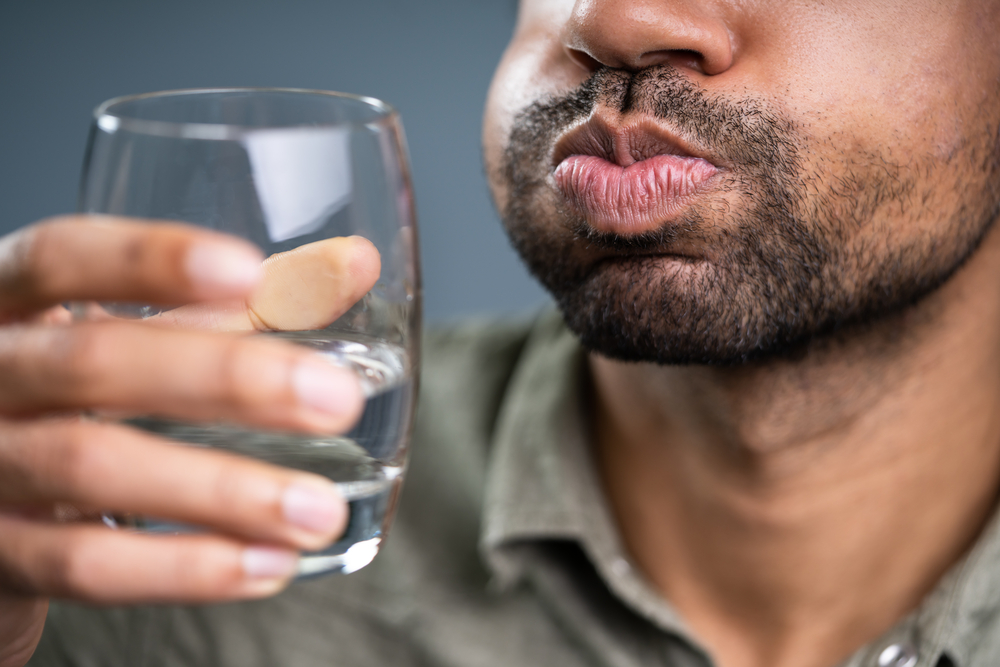What’s The Best Way to Floss
We all know we should floss, but it can be tough. Part of this is because flossing can feel like an extra task in an already busy day, but it...

Not only is suffering from dry mouth uncomfortable, but it can also be damaging to your oral health. Bad breath, an increase in cavities, and difficulty swallowing are just some of the many side effects that worsen when suffering from dry mouth.
It’s a common misconception that these symptoms are an inevitable part of getting older; however, dry mouth doesn’t just affect the elderly. It can be a common side effect of many over-the-counter and prescription medications subscribed to patients suffering from chronic health conditions.
Whether your dry mouth is caused by an underlying medical condition, medications, or other contributing factors, there are simple steps you can take to keep your salivary glands producing.
Here are six simple ways anyone can produce more saliva.
Taking small sips of water throughout your day can significantly decrease the symptoms of dry mouth. Water is the healthiest liquid for your teeth while being great for keeping your body hydrated. Depending on what is causing your dry mouth, water may not be enough to combat symptoms entirely or to stop dry mouth from occurring, but it certainly won’t hurt.
Chewing sugar-free gum or sucking on sugar-free lozenges or candies are all a great way to help stimulate your salivary glands and produce more saliva. While practical, this approach should be used cautiously as sucking on candies and gum made with sugar will contribute to cavity formation. Even sugar-free mints can create a shift in your mouth’s pH levels and create a more acidic environment, so always be sure to use caution.
Digesting certain foods and beverages have a direct link to dry mouth symptoms. The top offenders include coffee, soda, and alcoholic beverages. Spicy and salty foods can also aggravate dry mouth symptoms and increase the dryness of your mouth. By controlling what you eat and the beverages you consume, you can find relief from dry mouth symptoms.
For those suffering from intractable dry mouth that is not remedied by simple solutions, a mouth spray specially formulated to combat dry mouth may be necessary. These simple sprays can provide quick relief while immediately freshening the breath all in a convenient and portable way. Dry mouth sprays can also help maintain a healthy pH balance in the mouth, which assists in fighting against cavities.
An oral rinse may be another beneficial tool for those suffering from extreme dry mouth. These rinses are specially formulated to help alleviate the symptoms that accompany dry mouth when used correctly. However, not all oral rinses are effective at treating dry mouth. Those that contain alcohol will continue to dry out your mouth while increasing the level of discomfort. For a personal recommendation, ask your dentist which oral rinse is the right option for you at your next exam.
The best way to find a treatment for dry mouth is to identify what is causing the issue. Generally, dry mouth is often caused by medication, as it is a common side effect of drugs used to treat depression, anxiety, pain, allergies, and other underlying conditions. If you are suffering from dry mouth symptoms, talk with your doctor about the medications you’re currently taking so your dosage can be adjusted or so a different medication can be recommended.
Always discuss any uncomfortable symptoms you are experiencing with Hoffman Dental Care at your routine exams. Together, we can keep your teeth and mouth healthy with personalized recommendations.